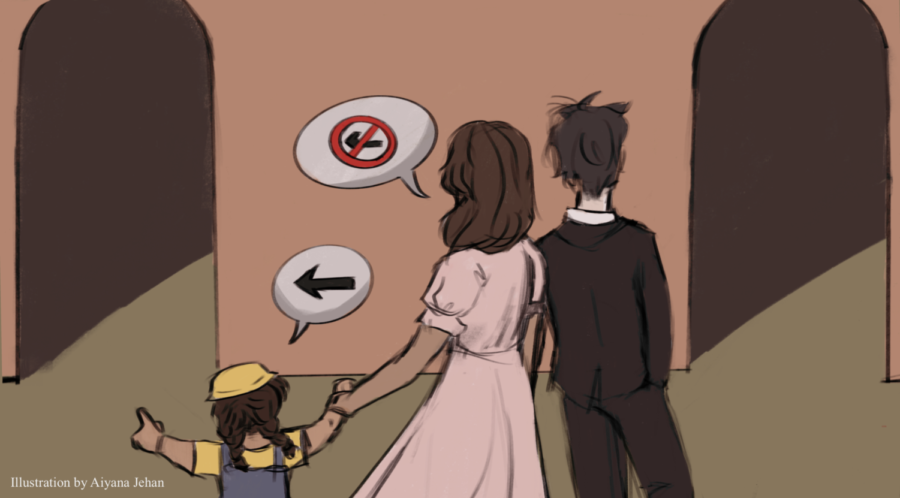How to make a career in the arts a reality: Students, staff provide advice for bringing your creative dreams to life
From a very young age, my passion has always been music. Thankfully, my parents gave me the opportunity to expand my knowledge in music by enrolling me in weekly piano lessons since I was five years old. At first, I thought of music merely as a hobby, but, as I grew older, my love for music became insatiable, and I developed the drive to pursue music as a career. I was so enthusiastic about pursuing music, but soon, fear began to sink in.
The idea of taking a risk to obtain a career in the arts made me fear of not having a steady income as well as potentially failing, making my idea of happiness feel impossible.
I also realized that pursuing my dream in music may not bring happiness and could make me grow to hate music if I struggle or fail. It’s a huge risk that many people have taken, and they have either risen to the top or have struggled without hitting the lottery of success.
I am so set on pursuing my dream in music, and I don’t want to get rid of that dream, so how best to proceed? Here are some strategies that I’ve gathered by talking to my peers and people who have faced this same dilemma in their own lives:
Show You Have Confidence.
Senior Freddie Watson wants to help design advertisements to market Black owned products with graphic design. Watson notes that his father is supportive of him, but his mother, who is an immigrant from South America, was not as accepting.
“Me having a goal like this is unorthodox, so it does conflict a little bit,” Watson says. “I used to draw a lot when I was a kid and, all the time, I would get in trouble with my teachers and my mom would be like, ‘Stop doing this,’ but it really came down to explaining to her that this job is lucrative at least and that it could lead to a career.”
Watson plans to get a degree in arts and communication and is determined to go into design and feels that, in order to take the risk of pursuing a career in the arts, confidence is key.
“Prove to yourself that you can prove others [wrong],” Watson says. “If you really want to do art, learn your art and make sure that you’re confident in yourself. That will show to your parents, because you can have the admiration to go into that field, but if you don’t feel like you can do it, then how are your parents going to feel like you can do it?”
Dream Realistically.
Fine Arts Teacher Karla Clark, who teaches Wildkit Ensemble and Music Technology, began singing at a young age, with her parents recognizing that her voice was special. Singing was her passion, and she knew she wanted to pursue music early in her life. Her idea was to become a superstar, while her parents’ idea was sticking with voice lessons.
“[My parents] were probably hesitant to believe in my dream to the extent that I wanted to see it, so were they supportive? Yes. Did they actually think I could become a superstar? Probably not.”
Instead, Clark did multiple degrees, two in vocal performance and one in music education, that made her happy to land a stable career in teaching the subject she was most passionate about as well as continue performing.
Have a Fallback Option.
Pursuing your dreams, but having a backup plan by doing a double major, dual degree or multiple degrees can be an option that guarantees a well-paying job while having the qualifications to pursue another job in the arts or having the qualifications to work on art projects.
While pursuing multiple degrees is a lot of work and can be expensive, Clark found that her degrees in vocal performance and music education have allowed her to lead a successful and comfortable life, while also expanding her opportunities.
“It has given me the opportunity to be a vocalist and an educator, not just one or the other, but both of them have coexisted at the same time,” Clark says. “There’s no discrepancy, and there’s only access to richer things as a result of having two degrees.”
Julia Borrelli, Director for Bienen School of Music at Northwestern, graduated from Northwestern University in June after doing a dual degree program in learning and organizational change (LOC) and music composition, revealing that there are plenty of options to choose from when picking a second, non-arts related degree.
“Some people choose economics, some people choose statistics, some people choose math, some people do LOC, and there’s a couple certificates and minors people can do,” Borrelli says.
If doing a dual degree sounds like an appealing option, Borrelli advises interested people to spend time reading websites of schools that they want to enroll into and then write down any questions they may have about the requirements and send them to the admissions director.
“Each school has different requirements, and each school has two portals to apply to. It can get pretty intricate being a music major. I will say though, for my portfolio, it was scores, recordings, videos, artist statements, essays—all of those things went into your portfolio,” Borrelli says. “By the time you’re done with it, you’re probably going to have 10 files that you want to send over with a mixture of recordings, pieces and essays.”
Pick a Career Where Two Skill Sets Collide.
Instead of balancing two different jobs, one in the arts and the other non-arts related, Clark recommends looking at both skill sets of a career in the arts and another career to see if there is one job that combines the two skill sets.
“An audio engineer does all the mixing and whatnot. They have an engineering background, it’s in audio, so there’s that technical part, and there’s the creative part,” Clark says. “There’s no competition when you are thinking about going into two different fields, because a lot of the skills that might be required for one job could be the same skill set that’s required for another one, so there could be a happy medium there.”
Keep An Open Mind.
If you’re facing this dilemma of wanting to pursue a career in the arts, but also feel uncertainty weighing on you, explore doing multiple degrees or finding a career that combines the arts with another field. Find a compromise or workaround that will ease your fears while also making you happy to continue the arts. Make sure to also keep an open mind by not limiting yourself by sticking to only arts-related activities. By keeping an open mind, you will expand your options, which will allow you to choose from various jobs in the future.
Law, engineering and medicine are stable and fulfilling fields for many people. However, we need the painters, actors, musicians and comedians that are the creators, dreamers and risk-takers.
Your donation will support the student journalists of the Evanstonian. We are planning a big trip to the Journalism Educators Association conference in Nashville in November 2025, and any support will go towards making that trip a reality. Contributions will appear as a charge from SNOSite. Donations are NOT tax-deductible.





